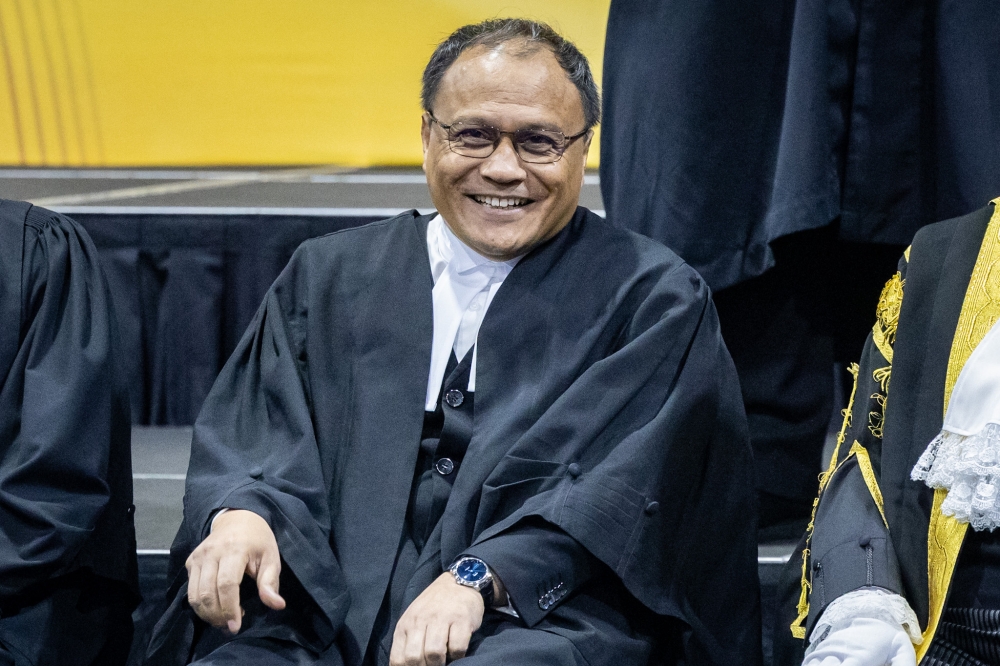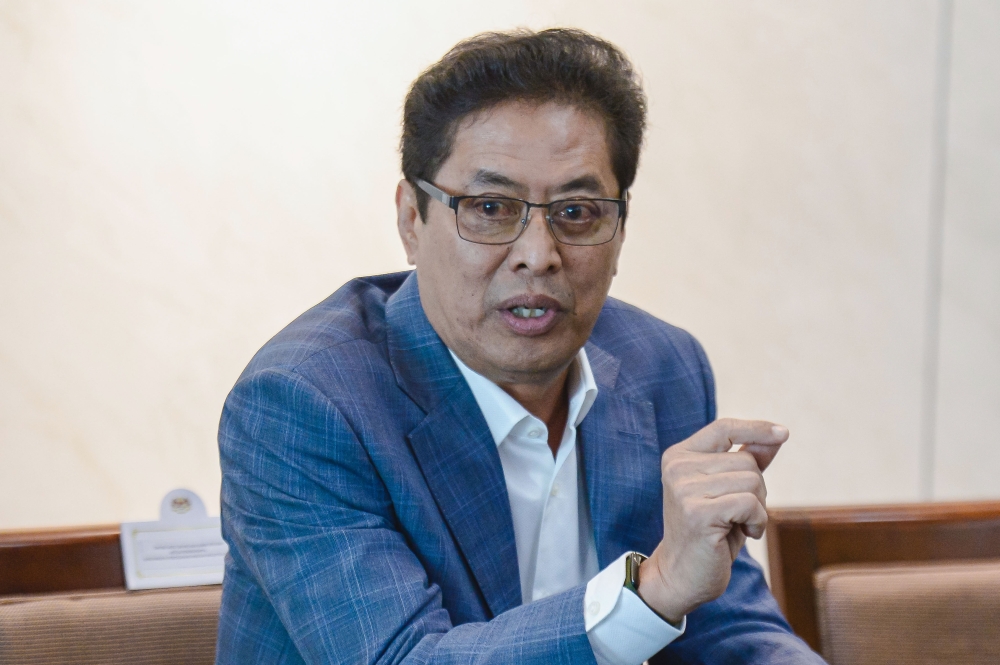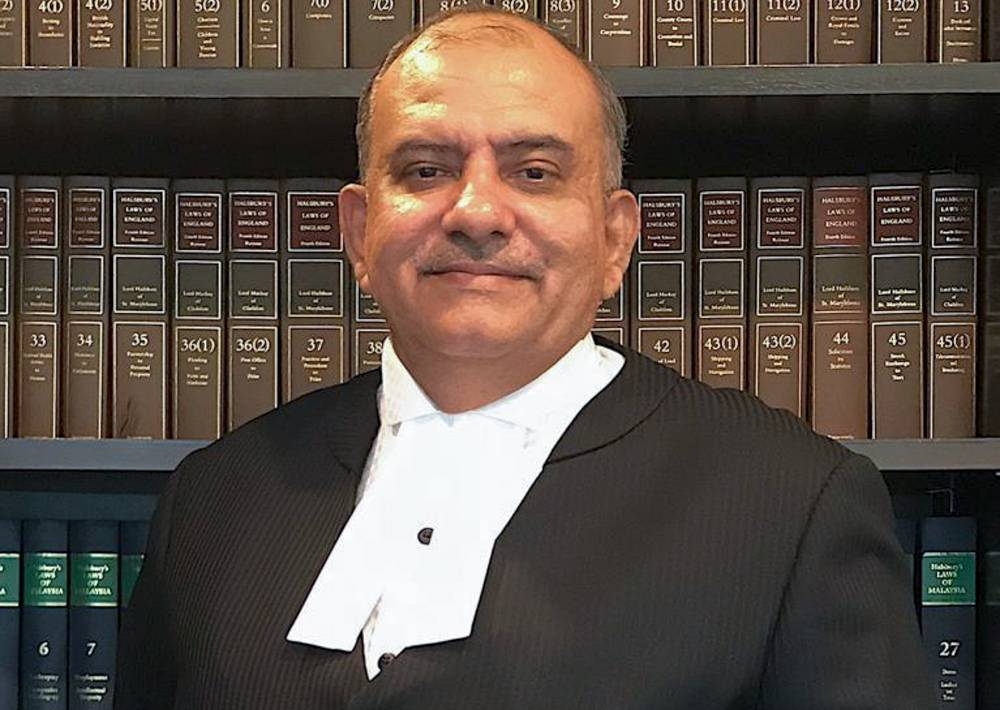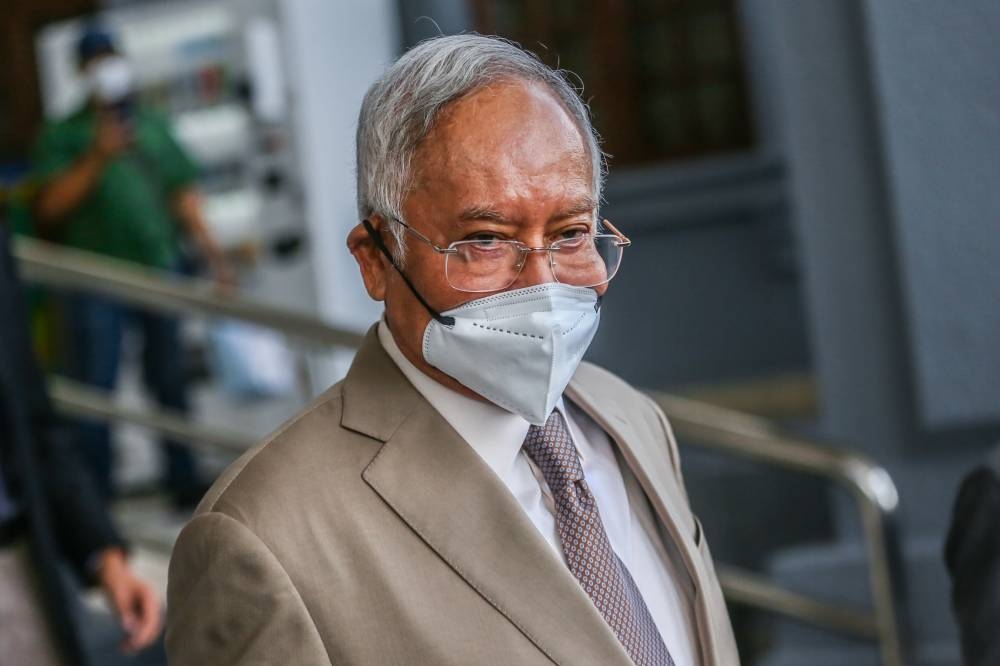KUALA LUMPUR, Aug 12 — What happens if you are accused of a crime and your lawyer decides to stop being your lawyer on the day of your trial or court hearing?
Will the courts give you time to find new lawyers if you still want one to defend you in court, even though it will cause a delay to the case?
Or can the courts decide to go ahead with hearing your case on that day, even though you have no lawyer to argue for you?
Well, the answer is both yes and no, depending on the situation. Here’s what several lawyers told Malay Mail when contacted:
No precise formula, but always changing lawyers could be abuse of process
Senior criminal lawyer Datuk Baljit Singh Sidhu confirmed that there have been instances in Malaysia when lawyers discharge themselves from representing their clients in criminal cases just days before or on the day the cases are heard but said these are “not rampant”.
As for whether the courts would postpone hearing criminal cases when an accused person is left without lawyers, Baljit said such postponements would normally be allowed.
“Where there is discharge, court in normal circumstances will allow an adjournment to allow the accused to appoint a lawyer and the hearing will be postponed,” he said, pointing out the right to be represented by a lawyer is a right under the Federal Constitution.
But if an accused person keeps changing their lawyers in a criminal case, the court will decide whether to allow or disallow postponement, he said.
“Where there is an abuse such as rampancy in changing a lawyer by the said accused, then the court may decide on the matter as it will be regarded as an abuse of process,” the adjunct professor of law at Universiti Sultan Zainal Abidin said.
Baljit explained that the law gives the court an “unfettered discretion to postpone or adjourn a criminal trial if there is a reasonable cause”, noting that no definite ruling can be laid down on what amounts to reasonable cause.
“Each case to be dealt with according to its own peculiar facts,” he said.
While there was no doubt that postponements would delay the criminal matter, he also noted the general approach is that “every latitude must be given to an accused person to defend his case”.
Asked about the factors that courts would consider when deciding whether to allow postponements for scheduled hearing of criminal cases, Baljit said: “There is no precise list or a formula.”
He said the reasons for adjournment will be presented to the court, which will then decide whether there is reasonable cause to postpone the case.

To postpone or not to postpone: Fair trial, justice, expediency, and more
Former Malaysian Bar president Salim Bashir Bhaskaran referred to the Federal Constitution’s Article 5(3), which he said enshrines a person’s right to be represented by lawyers.
Under Article 5(3), a person who is arrested shall be informed as soon as possible on why he was arrested and shall be allowed to be defended by a lawyer of his choice.
He also cited Section 172B(iii) of the Criminal Procedure Code where judges are to assist an accused who is unrepresented to appoint a lawyer to represent him.
Depending on the circumstances, the courts can choose to push the hearing to a later date to facilitate a fair trial or decide to go on with the case if there had previously been repeated delays.
“Criminal jurisprudence on a right of a fair trial includes the rights to be represented by lawyers, and the courts should consider giving some time allowances to enable the accused to prepare himself by appointing new lawyers when faced with a situation of lawyers discharging themselves on hearing dates.
“However, when courts are faced with extreme climates of repeated postponements, long delays and unreasonable excuses from unrepresented accused persons, the courts can proceed to hear matters without representation of lawyers,” the senior criminal lawyer explained.
“In practice, the courts will usually consider the end justice of a case involving unrepresented accused persons before making a decision to postpone a criminal matter, moreover if it is a serious offence carrying severe punishments, complexity of the matter and other reasons.
“End of the day, the courts are bestowed with discretion to decide whether to allow postponements or otherwise without compromising rule of law, justice, and equally to ensure expediency to bring closure and render justice to the victims and accused persons,” he added.
Why do lawyers discharge themselves from cases?
Salim said the courts do indulge those in cases to appoint and to change lawyers as they wish, within limit.
Citing Rule 2, Rule 6 and Rule 24 of the Legal Profession (Practice and Etiquette) Rules 1978, Salim said lawyers are mandated to give advice or accept any cases in the courts, and they “must be ready to conduct the matter on the day fixed for trials” once they have accepted the case.
Rule 2 covers a lawyer’s obligation to give advice or accept cases, but special circumstances can justify the lawyer’s refusal to accept a case.
Rule 6 states that a lawyer shall not accept any case unless he is “reasonably certain of being able to appear and represent the client on the required day” and should not withdraw from the case without sufficient reasons and sufficient notice to the client.
Rule 24 states that lawyers are to be ready for the day fixed for trial and can only apply for postponement of the case fixed for hearing for good and cogent reasons only.
Salim added that counsels or lawyers acting for the accused in trials or appeals must undertake all defence fairly and honourably and must raise every legal issue and advance every argument, however distasteful it will be in defending the accused persons.
But he also said it is common for lawyers to discharge themselves even on hearing dates from representing their clients on valid reasons, which varies from not being paid legal fees; clients failing to cooperate or failing to give instructions; lawyers being unable to discharge their task to their best ability; lawyers facing health and other issues which had been communicated to the accused persons.
While the reasons for discharge would be best known to both the lawyer and the client, Salim said lawyers should prudently consider giving reasonable notice to the clients of such intentions to enable the accused persons to appoint new lawyers, and that it would also be best practice for lawyers to inform the court of any such possibilities.
This is because “lawyers owe duties to the court, clients and profession in the course of their work”, he said.
Vivekananda Sukumaran, co-chair of the Bar Council’s Criminal Law Committee, noted that lawyers can be discharged by the court when applied for by lawyers or even by the clients themselves.
He cited as example the recent defamation lawsuit by Seputeh MP Teresa Kok, where Umno politician Datuk Seri Jamal Md Yunos discharged his own lawyers the day before the hearing and chose to represent himself. Jamal later failed to have the case — dating back to 2017 — postponed for him to appoint new lawyers, and conducted the case himself at the High Court and lost the lawsuit.
“Historically, we have heard of situations where lawyers are unable to take instructions from clients and end up applying to discharge themselves on the eve or on the day of hearing,” Vivekananda said, explaining that “instructions” could include issues such as the client’s non-payment of fees for conduct of hearing.
He said there could also be other issues that may frustrate a lawyer from properly representing the client, such as “client’s refusal to cooperate with lawyer or to follow lawyer’s advice on a material matter, or any other fact or circumstance that would render lawyer’s continuing representation unlawful, unethical, or impractical”.
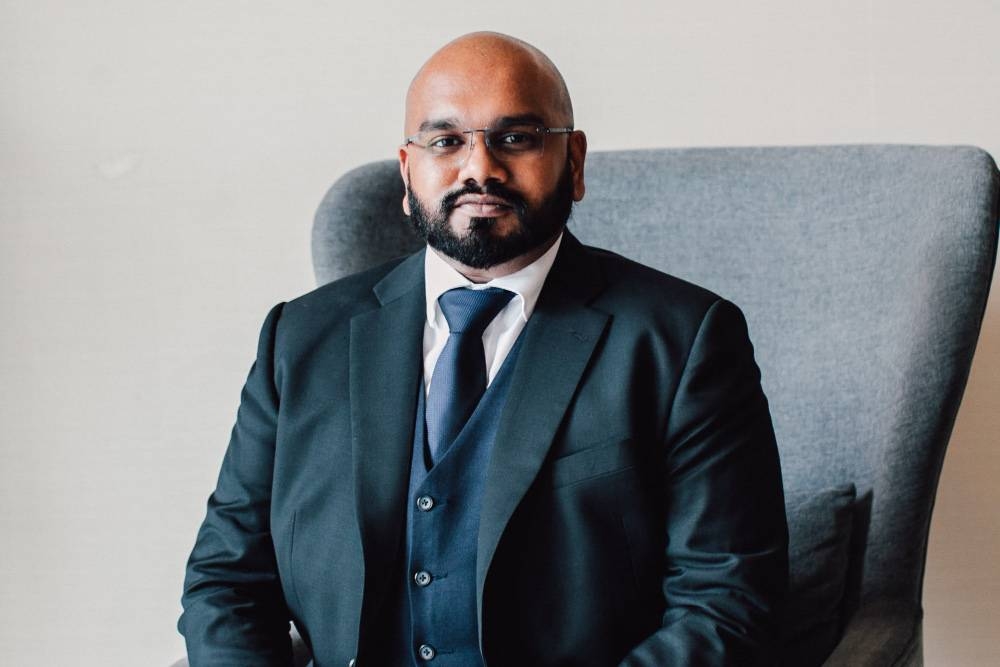
Rare to refuse postponements, but possible if accused used delay tactics
Vivekananda expressed his view that the courts ought not to grant an adjournment of a criminal case when an accused person has no lawyers to represent him, if an accused person had already been given fair access to representation by lawyers.
“The courts can and have chosen to proceed with hearings while the accused is unrepresented.
“However, such situations are rare and only when it is glaring and clear that the accused has been afforded enough time to choose counsel of his choice” or if the accused person had already been given the opportunity to be represented by a lawyer via the legal aid scheme or through a court-assigned lawyer if he cannot afford to hire one.
“The court will also consider if the accused is shown to have abused the court’s administration and process or has deployed delay tactics clearly to an advantage,” he said.
If the court decides to go on with hearing a criminal case even when the accused person wants to hire new lawyers to replace the lawyers who discharged themselves on the day of hearing, Vivekananda indicated that this would not necessarily result in a denial of an accused person’s right to representation and right to fair trial.
It would not be a denial of an accused person’s right to representation if they are without lawyers in a criminal hearing, if “it can be shown that the sudden discharge on the eve of hearing was the accused person’s own doing, or other reasons that show the accused may have had control over the representation and discharge but chooses to use it to delay proceedings”, he said.
“Because maintaining good administration of justice is also equally important as the right to representation,” he said.
He listed “fairness to the administration of the case, whether the accused is genuinely stifled to the access of justice, inordinate delays to securing counsel, whether the application is a delay tactic to take advantage from an adjournment” as factors that courts could consider when deciding whether to postpone a previously scheduled criminal hearing.
“The law is quite fair and clear. The litigant may be able to secure an adjournment if he can present in good faith the adjournment application is not a delay tactic and that the discharge of representation and surrounding issues were out of his control,” he said.
Earlier this week, it was reported former prime minister Datuk Seri Najib Razak’s new team of lawyers — appointed just more than two weeks ago — had indicated to the Federal Court that they may discharge themselves from representing him in his final SRC appeal, if the Federal Court decides not to postpone the appeal hearing scheduled for August 15 (next Monday). Najib’s new lawyers reportedly indicated the need for more time to prepare.
Najib’s new lawyers, who were appointed only on July 25, had previously indicated on July 26 their intention to have the appeal hearing postponed due to a “wholly new team” having taken over the SRC case. But the Federal Court on July 28 had said “no postponements will be allowed”.
Vivekananda said the new team of lawyers in Najib’s final SRC appeal had taken up the case after the Federal Court had fixed the hearing dates, and that Rule 6 meant the counsels should not have taken up the case if not prepared.
“Counsels are in no place to assume that an adjournment application will automatically be allowed just because of a representation change,” he said.
Noting that the new lawyers were aware of the dates and Najib’s previous team of lawyers did not say there was frustration of their representation of him, Vivekananda said: “Considering Rule 6, the accused must explain why he decided to change solicitors, and why he decided to engage solicitors who are unprepared to comply with the court’s directions and deadlines. He must show that this is in no way an attempt to stifle the proper administration of justice, and delay proceedings in his favour.
“It is not uncommon for parties to attempt to delay proceedings. But Rule 36 makes it clear that lawyers cannot perpetuate or enable their client’s misconduct towards court,” he said.
Rule 36 of the Legal Profession (Practice and Etiquette) Rules 1978 requires lawyers to use their best efforts to prevent their clients from wrongful conduct towards the court, and that the lawyers should terminate the relationship if a client persists in such wrongdoing.













